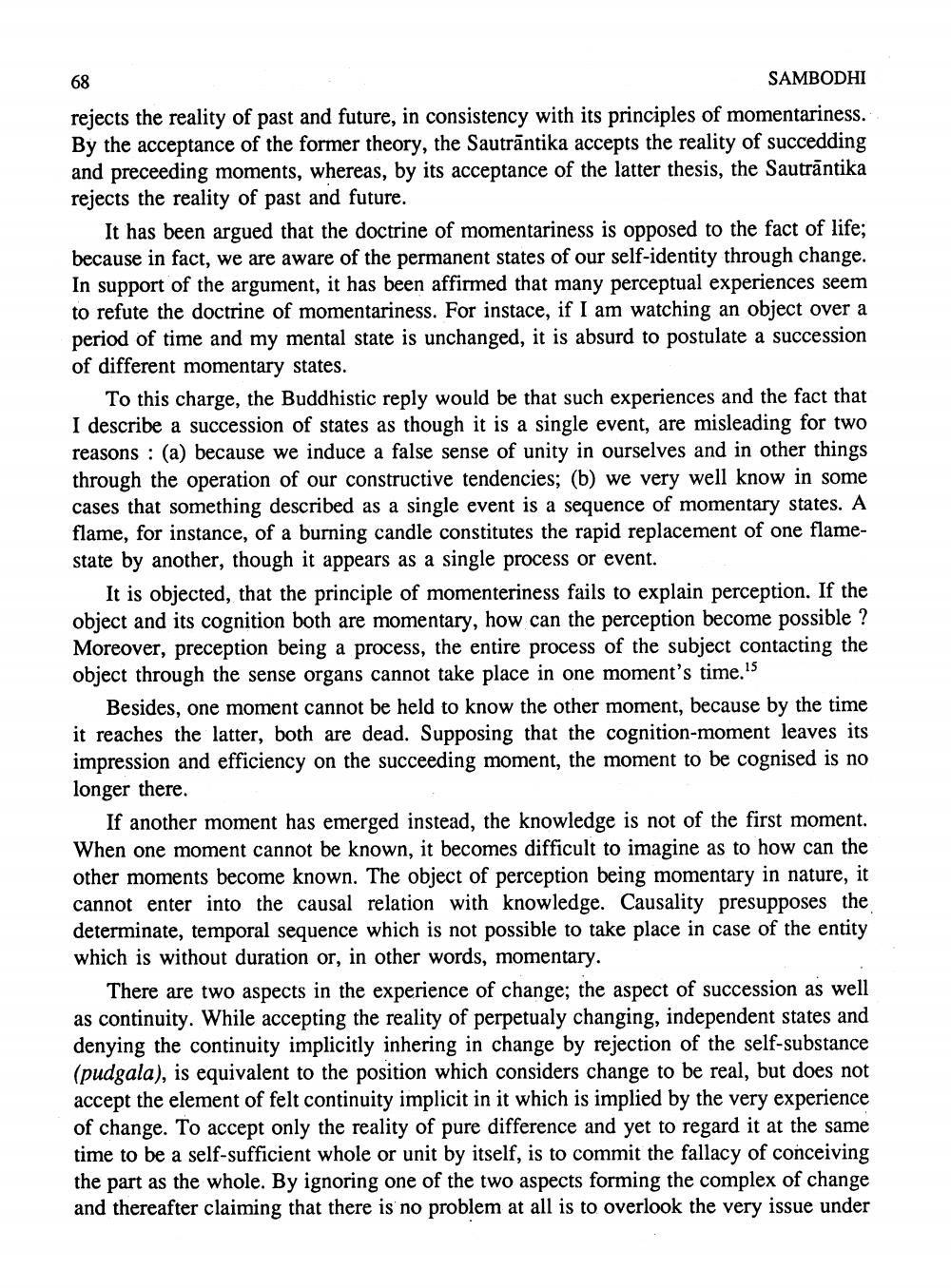________________
68
SAMBODHI rejects the reality of past and future, in consistency with its principles of momentariness. By the acceptance of the former theory, the Sautrāntika accepts the reality of succedding and preceeding moments, whereas, by its acceptance of the latter thesis, the Sautrāntika rejects the reality of past and future.
It has been argued that the doctrine of momentariness is opposed to the fact of life; because in fact, we are aware of the permanent states of our self-identity through change. In support of the argument, it has been affirmed that many perceptual experiences seem to refute the doctrine of momentariness. For instace, if I am watching an object over a period of time and my mental state is unchanged, it is absurd to postulate a succession of different momentary states.
To this charge, the Buddhistic reply would be that such experiences and the fact that I describe a succession of states as though it is a single event, are misleading for two reasons : (a) because we induce a false sense of unity in ourselves and in other things through the operation of our constructive tendencies; (b) we very well know in some cases that something described as a single event is a sequence of momentary states. A flame, for instance, of a burning candle constitutes the rapid replacement of one flamestate by another, though it appears as a single process or event.
It is objected, that the principle of momenteriness fails to explain perception. If the ject and its cognition both are momentary, how can the perception become possible ? Moreover, preception being a process, the entire process of the subject contacting the object through the sense organs cannot take place in one moment's time.15
Besides, one moment cannot be held to know the other moment, because by the time it reaches the latter, both are dead. Supposing that the cognition-moment leaves its impression and efficiency on the succeeding moment, the moment to be cognised is no longer there.
If another moment has emerged instead, the knowledge is not of the first moment. When one moment cannot be known, it becomes difficult to imagine as to how can the other moments become known. The object of perception being momentary in nature, it cannot enter into the causal relation with knowledge. Causality presupposes the determinate, temporal sequence which is not possible to take place in case of the entity which is without duration or, in other words, momentary.
There are two aspects in the experience of change; the aspect of succession as well as continuity. While accepting the reality of perpetualy changing, independent states and denying the continuity implicitly inhering in change by rejection of the self-substance (pudgala), is equivalent to the position which considers change to be real, but does not accept the element of felt continuity implicit in it which is implied by the very experience of change. To accept only the reality of pure difference and yet to regard it at the same time to be a self-sufficient whole or unit by itself, is to commit the fallacy of conceiving the part as the whole. By ignoring one of the two aspects forming the complex of change and thereafter claiming that there is no problem at all is to overlook the very issue under




